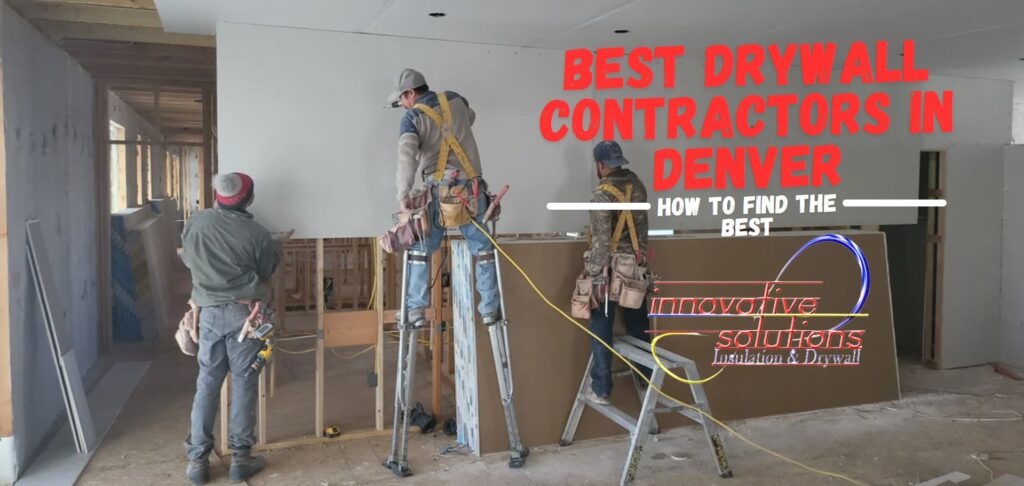There are unique climate challenges in Denver. That’s why it’s important to know the right kind of insulation thickness for your home because it’s a fundamentally important factor.
- Key Takeaways
- Purpose and History of How Thick is R 30 Insulation in Denver
- Importance and Impact of R30 Insulation in Denver
- Current Building Codes and Regulations About Insulation in Denver
- R-30 Insulation Thickness and Its Effects on Energy Efficiency
- Advantages and Disadvantages of Using R30 Insulation in Denver’s Climate
- Potential Alternatives and Comparison of R-30 Insulation
- Additional Tips for Choosing the Right Insulation
- Measurement and Installation of R-30 Insulation
- DIY Method vs. Professional Method Installation
- People Also Ask
If you are thinking “How thick is R 30 insulation in Denver” Let me help make things clearer for you because the right amount of thickness is important for insulation in Denver and Aurora.
Key Takeaways
- In Denver, R30 insulation thickness varies by material: 9.5-10 inches for fiberglass batts, 4-5 inches for spray foam, and 8-9 inches for cellulose.
- Current building codes in Denver require R-values of at least R-49 in attics and R-21 in walls, with R30 suitable for floors and ceilings.
- R30 insulation significantly enhances energy efficiency, reducing heating and cooling costs by maintaining stable indoor temperatures.
Purpose and History of How Thick is R 30 Insulation in Denver
There is an R-30 material in the insulation. In this case, “R” means resistance and the numerical equivalence means the material does not allow heat to pass through it. Insulation with R-30 usually stops heat loss and gain. It keeps the inside of your house comfortable for a long time and makes sure there’s energy efficiency.
Over time, insulation standards in Denver have changed so much. At first, the requirements were very minor. Gradually, when people started prioritizing energy efficiency, the city began implementing more strict building codes in the country. Denver has higher R-values to make sure your house is insulated efficiently against the diverse temperature changes.
Looking for Drywall or Insulation Services in the Denver Area and Beyond?

Importance and Impact of R30 Insulation in Denver
Insulation makes buildings energy-efficient and liveable. It minimizes the building’s heating and cooling and also reduces its energy and carbon footprint. According to a study, certain insulation materials can help provide quality indoor air by reducing drafts and moisture infiltration.
R30 insulation in Denver will improve the air quality inside a building. It will do so by greatly reducing the air draughts and controlling the humidity level inside. This will make the living conditions very healthy. The molds formed in moist conditions will no longer be a problem for you, and the indoor climate will not change abruptly.
Current Building Codes and Regulations About Insulation in Denver
Denver’s building codes for insulation are all about keeping your home comfy and your energy bills lower, especially with our city’s hot summers and chilly winters. Here’s what you need to know:
For attics, the code requires insulation with an R-49 value for keeping the house warm during winter and cool during summer.
Moving to the walls, the required R-value for wood frame construction should at least have an R-30, but there are flexible options to achieve this:
- R-20 + 5 Continuous Insulation (ci)
- R-13 + 10 ci
- R-0 + 20 ci
For concrete, brick, and other mass walls, the R-19 level should be sufficient because of the natural thermal properties of these materials.
Steel frame walls shall be provided with R-13 cavity insulation and R-5 continuous insulation. This combination is critical since steel frames have a high possibility of conducting heat, which might result in more energy loss if the frames are not well insulated.
R-30 Insulation Thickness and Its Effects on Energy Efficiency
You may not know this, but 50%-70% of the energy in an average U.S. home goes into keeping its temperature warm during winter and cool during summer. That is why it’s essential to get your insulation right.
If you’re aiming for R-30 insulation, let’s look at how thick it needs to be to keep your energy bills down:
- Fiberglass Batts: You’ll need about 9.5 to 10 inches.
- Rock Wool: Must be kept approx 8.5 to 9 inches.
- Foam Spray: This one runs about 4 to 5 inches thick.
- Cellulose: This should take around 8 to 9 inches.
- Vermiculite: Approximately 14 inches will be needed.
- Polystyrene: Should be around 7.5 to 8 inches.
When it comes to insulation, if you use a filler material, it will give a better energy efficiency, while lowering your bills and providing more indoor comfort.
Advantages and Disadvantages of Using R30 Insulation in Denver’s Climate
Advantages:
Let me tell you about some advantages of using R-30 Insulation in Denver’s Climate,
- Energy Efficiency: R-30 has excellent thermal resistance and reduces heating and cooling because it has a high R-value.
- Comfortability: This helps in maintaining the temperature inside close to the one you set. This is because this insulation can conduct very little heat.
- Minimize Noise: It also minimizes the noise.
Disadvantages:
The drawbacks that I have mentioned below will help you stay prepared before time and help you decide if you want to proceed with your plan,
- Cost: The insulating materials with a higher R-value have a higher price.
- Installation: Sometimes, thicker insulation can require more work to fit and fix. You can face this problem mainly in smaller spaces.
Potential Alternatives and Comparison of R-30 Insulation
The R-30 insulation is very efficient, but I can give you some other options that can also fit your needs. These include:
- Fiberglass Insulation: These are inexpensive and easy to install.
- Cellulose Insulation: This insulation is environment-friendly and soundproof.
- Spray Foam Insulation: It has an excellent air seal and high R-value in thin layers.
Comparison of R-30 Insulation to Other Common Insulation Types
| Insulation Type | R-Value per Inch | Thickness for R-30 | Benefits |
|---|---|---|---|
| Fiberglass Batts | 2.2 - 2.7 | 9.5 - 10 inches | Cost-effective, easy-to-install |
| Spray Foam | 5.5 - 6.5 | 4 - 5 inches | High R-value, excellent air sealing |
| Cellulose | 3.2 - 3.8 | 8 - 9 inches | Eco-friendly, good soundproofing |
Additional Tips for Choosing the Right Insulation
The following are some additional tips for choosing the right insulation thickness for your property.
- Climate: The insulation has to bear cold winters and hot summers, the R-value should be more efficient in Denver.
- Budget: You have to gauge your budget against long-term energy savings.
- Complexity: You should make your installation decision either DIY or professional. It should depend on the job’s complexity.
Measurement and Installation of R-30 Insulation
If you want to know how the R-30 insulation is measured and tested, let me help you. The R30 insulation in Denver is measured for thermal resistance. The test is done by placing the insulation material between two plates.
It is run at different temperatures to make sure that the R-value that you get in the space will meet the requirements and specifications.
DIY Method vs. Professional Method Installation
| Method | Pros | Cons |
|---|---|---|
| DIY | Saves money | Needs skill and time for installation |
| Flexible timing | Possibility of mistakes | |
| Professional | Professionally installed with equipment | Requires a higher upfront investment |
| Warranted installation | Requires scheduling |
There are specific complex installations that need professional assistance, so you should always have professional help with you.
People Also Ask
How Many Inches Is R30 Insulation?
R30 insulation thickness varies by material: fiberglass batts are 9.5-10 inches, spray foam is 4-5 inches, and cellulose is 8-9 inches.
What Thickness Is R-30?
R-30 insulation thickness ranges from 9.5-10 inches for fiberglass batts, 4-5 inches for spray foam, and 8-9 inches for cellulose.
What Is the Thickness of R3 Insulation?
R-3 insulation typically measures about 1 inch, depending on the material used.
Is R30 Insulation Good?
Yes, R30 insulation offers excellent thermal resistance, energy efficiency, and comfort, making it ideal for Denver’s climate.
What Is the Best R30 Insulation for Denver?
The best R30 insulation for Denver includes fiberglass batts, spray foam, and cellulose, each offering unique benefits.
It is really important to know how thick is R 30 insulation in Denver when you want to save energy. It doesn’t matter if you choose fiberglass, cellulose, or spray foam, R-30 insulation can make a living space comfortable and save energy.
You can contact the best insulation installers in Denver ISID for consulting and proper installation.
Let us help you in making your home more energy-efficient and comfortable.




